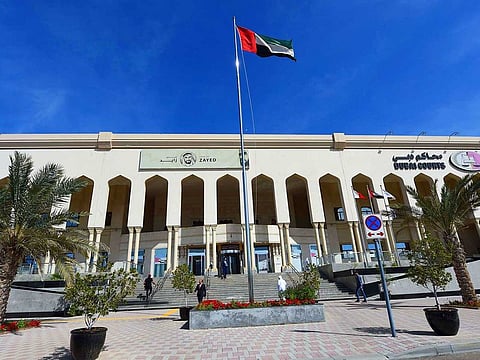Dubai Court overturns Gulf national's life sentence as drug trafficking evidence falters
Statements made by co-defendants against one another do not constitute primary evidence

Dubai court sentenced a young Gulf national to life in prison for drug trafficking — but later overturned the ruling after finding the case was based on weak and conflicting statements.
The 27-year-old man had been accused of selling drugs to two other men — an Iranian,48 and a Dutch national 27 — who were caught during a police raid in a Business Bay apartment. The pair admitted to drug use and told police they had bought the substances from the Gulf defendant.
Police found several drug-related items in the apartment, including cannabis oil, herbal mixtures, THC-laced vapes, and electronic scales. The Iranian man said he paid Dh1,000 to the Gulf national for the drugs, while the Dutch man claimed he paid Dh2,000.
Based on those statements, the Criminal Court sentenced all three men to life in prison, imposed a Dh500,000 fine, and ordered their deportation.
But during the appeal, the court took a closer look — and found serious problems.
Legal battle and acquittal
In defense of the Gulf national, attorney Mohammed Al Awami Al Mansouri argued that the initial conviction was fundamentally flawed, resting solely on testimonies that were both inconsistent and legally unreliable.
He emphasised that, under established legal principles, statements made by co-defendants against one another do not constitute primary evidence. Rather, they are considered secondary indicators that must be corroborated by independent proof.
Al Mansouri pointed to significant discrepancies in the Iranian defendant’s account. In his police statement, the Iranian claimed to have handed Dh1,000 to the Dutch defendant to purchase drugs from the Gulf national. However, in his later testimony to the Public Prosecution, he altered his story—claiming instead that he bought the drugs directly and transferred the money himself.
Likewise, the Dutch defendant initially stated upon arrest that he had purchased drugs for Dh2,000 and handed them over to the Iranian, asserting that the latter had no direct interaction with the Gulf national. These contradictions, Al Mansouri argued, severely undermined the credibility of the prosecution's case.
No evidence, no crime
Further weakening the prosecution’s position, Al Mansouri noted that the Gulf national was not named in the initial police investigation and was not arrested at the scene. He was later apprehended at the airport while on his way to perform Umrah, the Islamic pilgrimage to Mecca. Crucially, no drugs were found in his possession, no incriminating messages were retrieved from his phone, and no forensic evidence linked him to the alleged crime or his co-accused.
Additionally, the bank account cited in the investigation was never examined to verify any transactions, and the phone number attributed to the Gulf defendant was ultimately found not to be his.
With no concrete evidence establishing a link between the Gulf national and the alleged crime, the appeals court overturned the conviction and issued an acquittal.
Sign up for the Daily Briefing
Get the latest news and updates straight to your inbox

![Authorities confirmed drug use before woman is penalised. [Illustrative image]](http://media.assettype.com/gulfnews%2F2026-01-10%2Fio8us269%2Fcourt.jpg?w=320&auto=format%2Ccompress&fit=max)

